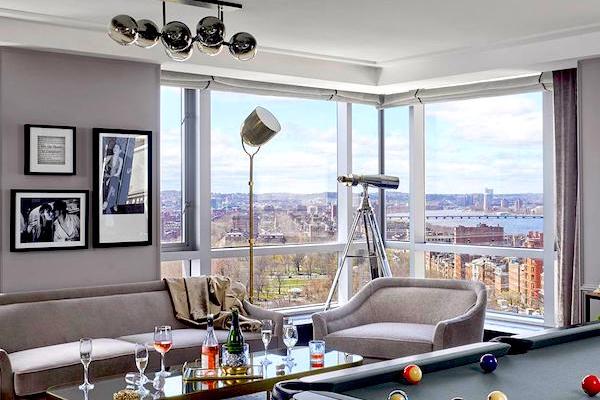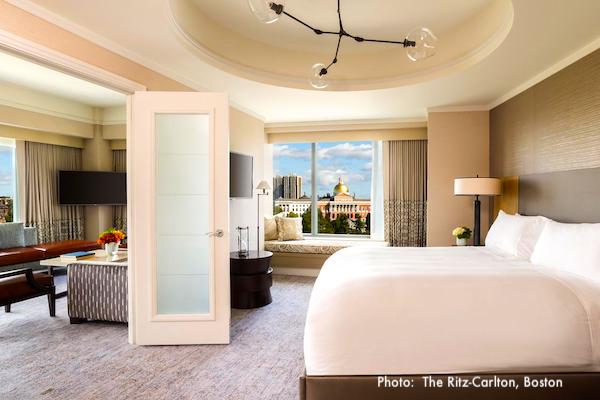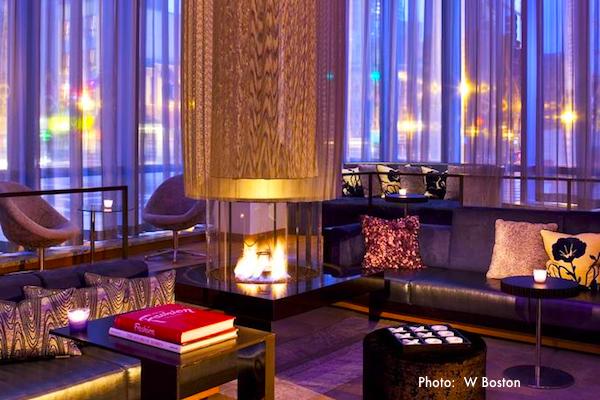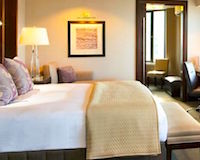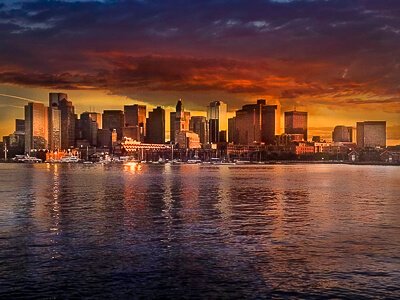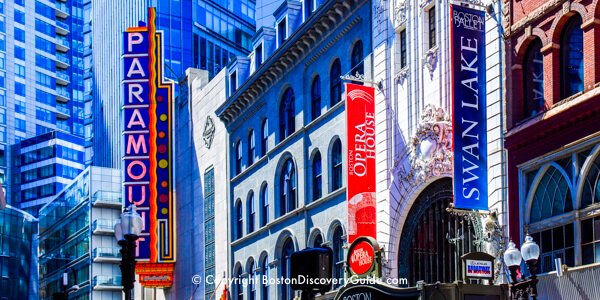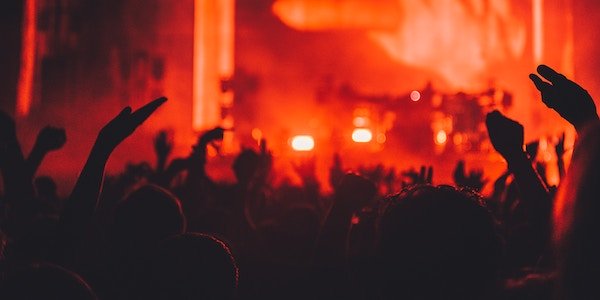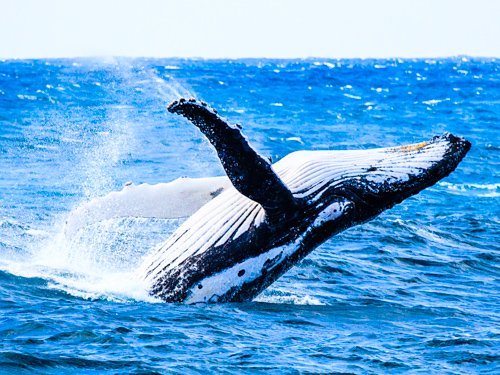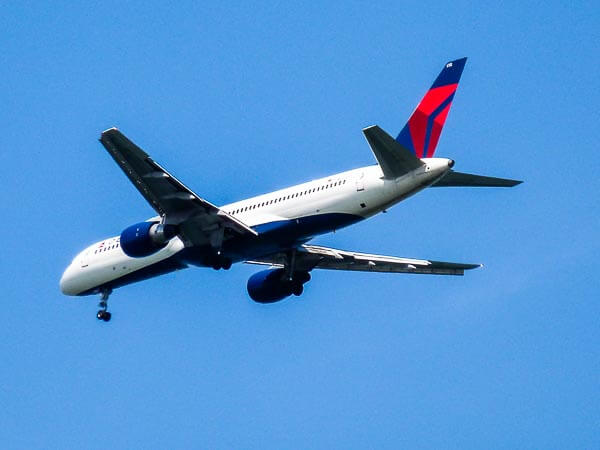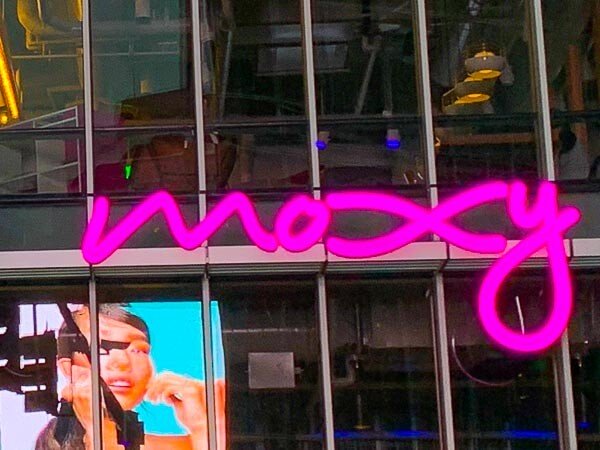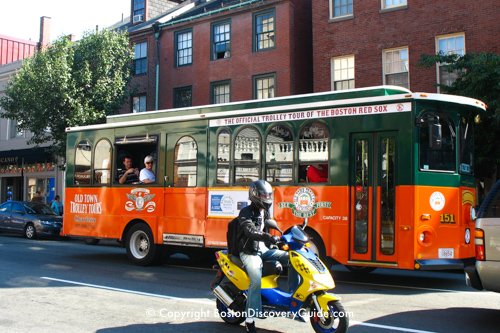Boston's huge and colorful Chinese New Year Parade usually (but not always) takes place each year on the second Sunday after the beginning of Chinese New Year.
The Chinese Near Year Parade held in honor of the Lunar New Year marks the biggest annual celebration in Boston's Chinatown, home to the third largest Chinese community in the U.S.
The parade starts at 10am on February 9, 2025 at Phillips Square (corner of Harrison Ave and Beach Street) and finishes at 3pm.
Check our February event calendar for any last-minute updates, especially if the weather looks iffy.
With troops of colorful lion dancers, drums and cymbals, firecrackers, and great food, this is a special event you won't want to miss!
The parade date varies each year and may also be subject to last-minute changes if we get extreme weather conditions - so keep your plans flexible if possible.
Top photo: Chinese New Year's Parade in Boston's Chinatown, (c) Boston Discovery Guide
Boston Discovery Guide is a reader-supported publication. When you buy through our links, we may earn a commission at no additional cost for you. Learn more
Chinese New Year Parade Route
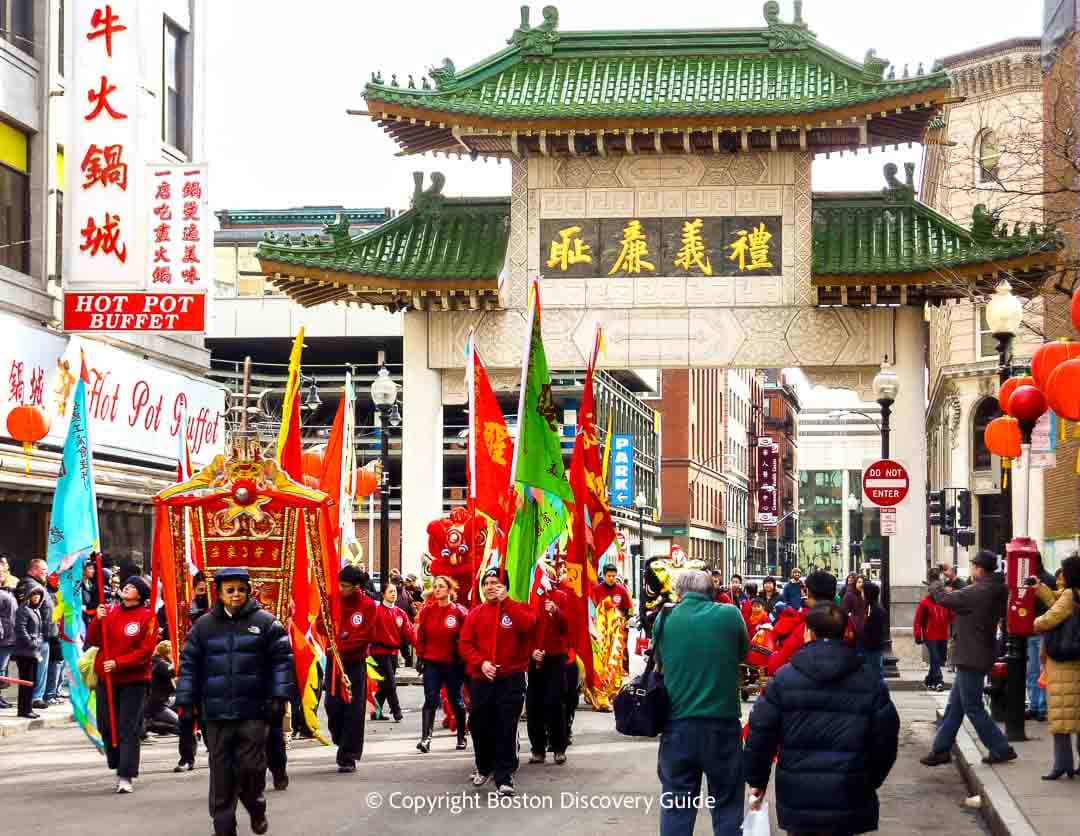
The Chinese New Year Parade route winds around the streets of Chinatown and gives you a great opportunity to see traditional Lion Dances - and a perfect excuse to visit one of the neighborhood's wonderful restaurants.
Most of Chinatown becomes pedestrian-only during the event.
After the parade's initial procession around the neighborhood, lion dances take place simultaneously in multiple locations, going from business to business up and down all the streets, smaller lanes, and alleys.
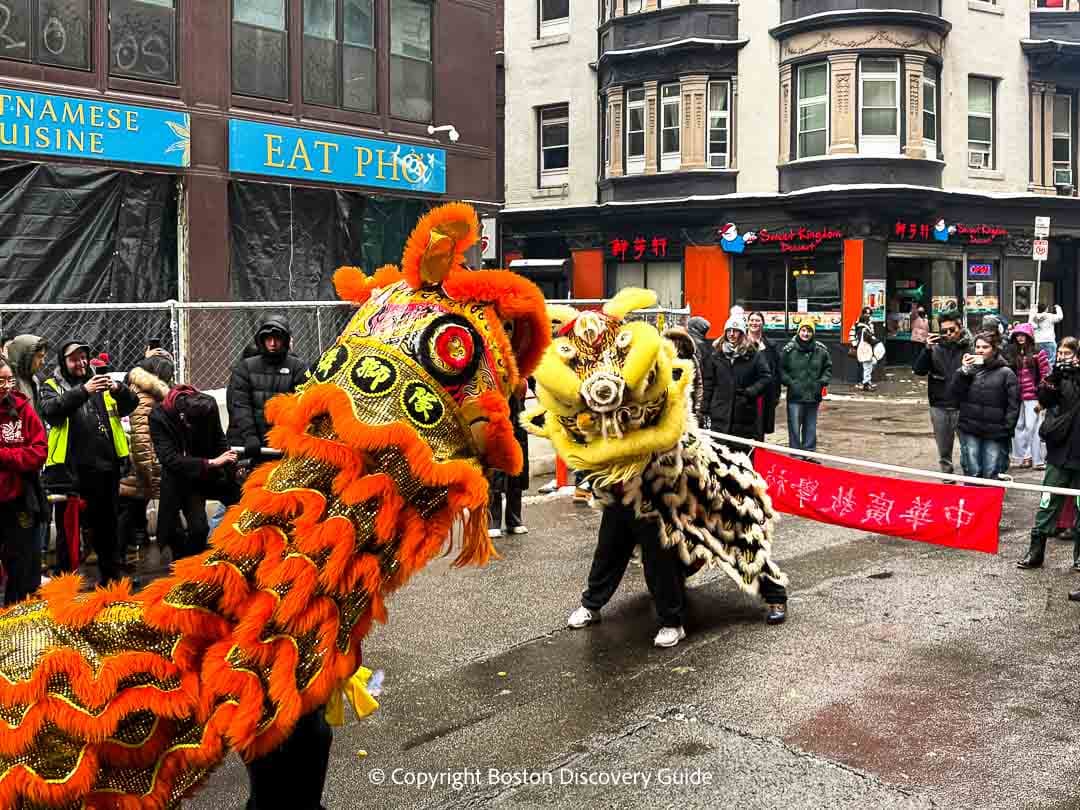
You'll typically see performances along Kneeland Street, Essex Street, Harrison Ave, and several smaller side streets - sometimes all happening at once.
So where is the best place to watch the parade? Just follow the noise from the drums and firecrackers to find the action. There is no one "best" place to view the parade.
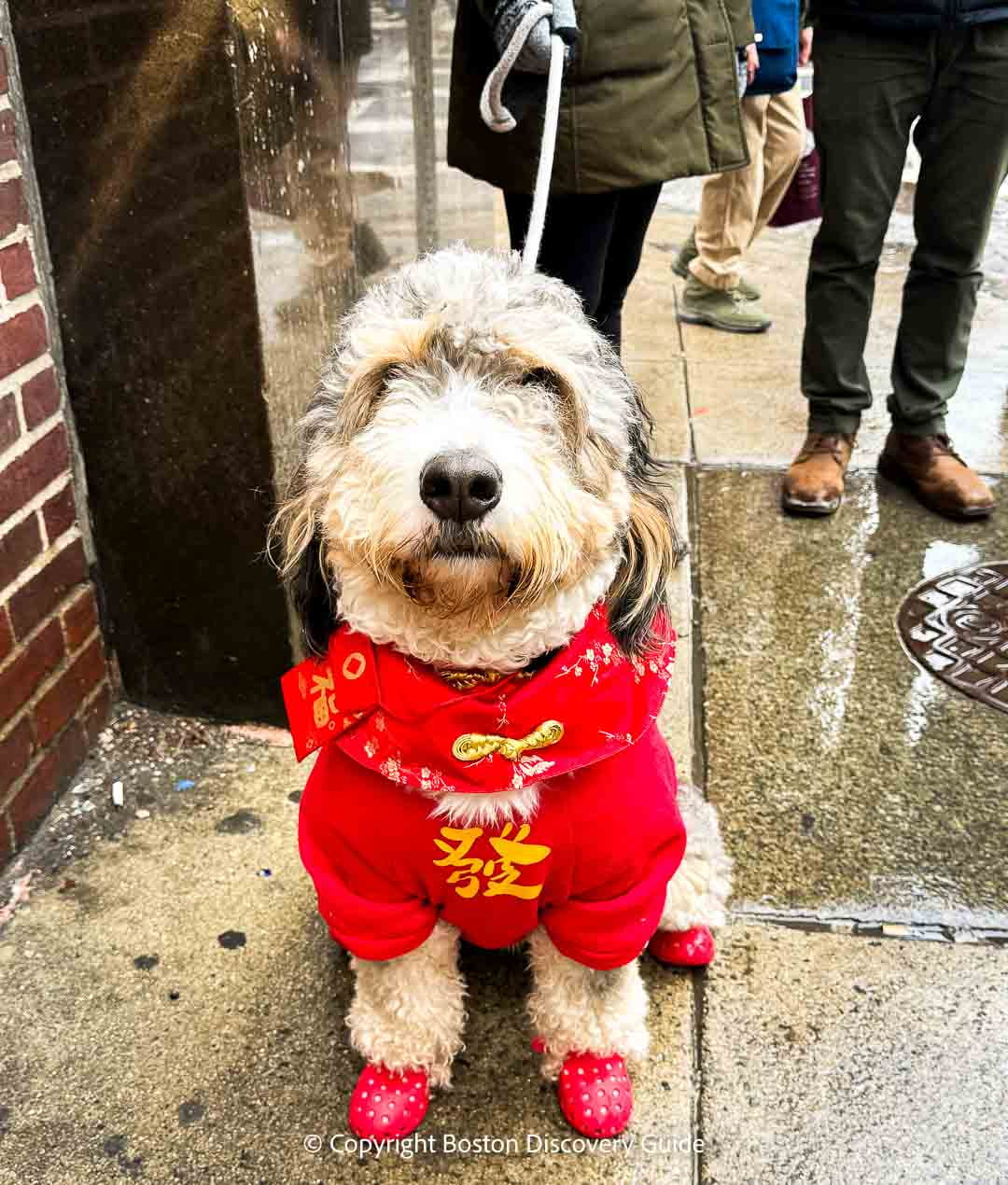
What Kind of Weather to Expect During the Chinese New Year Parade
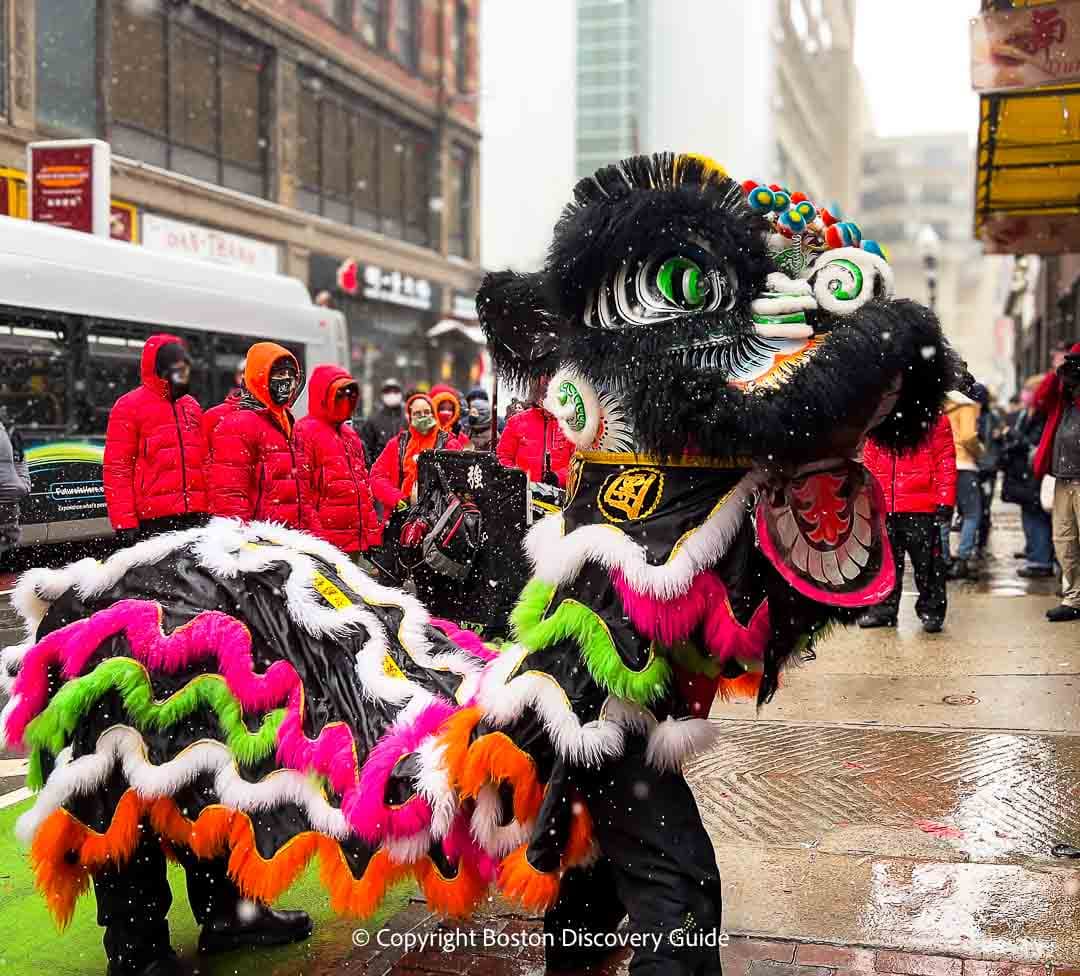
Because Boston's Chinese New Year Parade typically takes place in late January and early-to-mid February and because those are the periods when we usually get the most snow, the chances that snow may be falling during the parade or right before or right after are actually rather high.
Boston's Public Works department usually clears away snow that accumulates overnight quite quickly so that the parade can proceed. Worst case, it may start an hour later than planned if the snow doesn't stop falling.
During most years, you should plan to wear layers of warm clothing including a scarf, perhaps a hat or hood, and warm shoes or boots with thick soles since you'll be standing for awhile to watch the parade. Especially when the temperature stays below freezing, you can get cold faster than you might expect.
Of course, Chinatown is packed with wonderful cafes and restaurants where you can pop in to warm up over a bowl of hot soup, steamed dumplings or noodles, or dim sum. For something more substantial, treat yourself to hot pot at Q Restaurant (660 Washington Street) or Kaze Shabu Shabu (1 Harrison Ave).
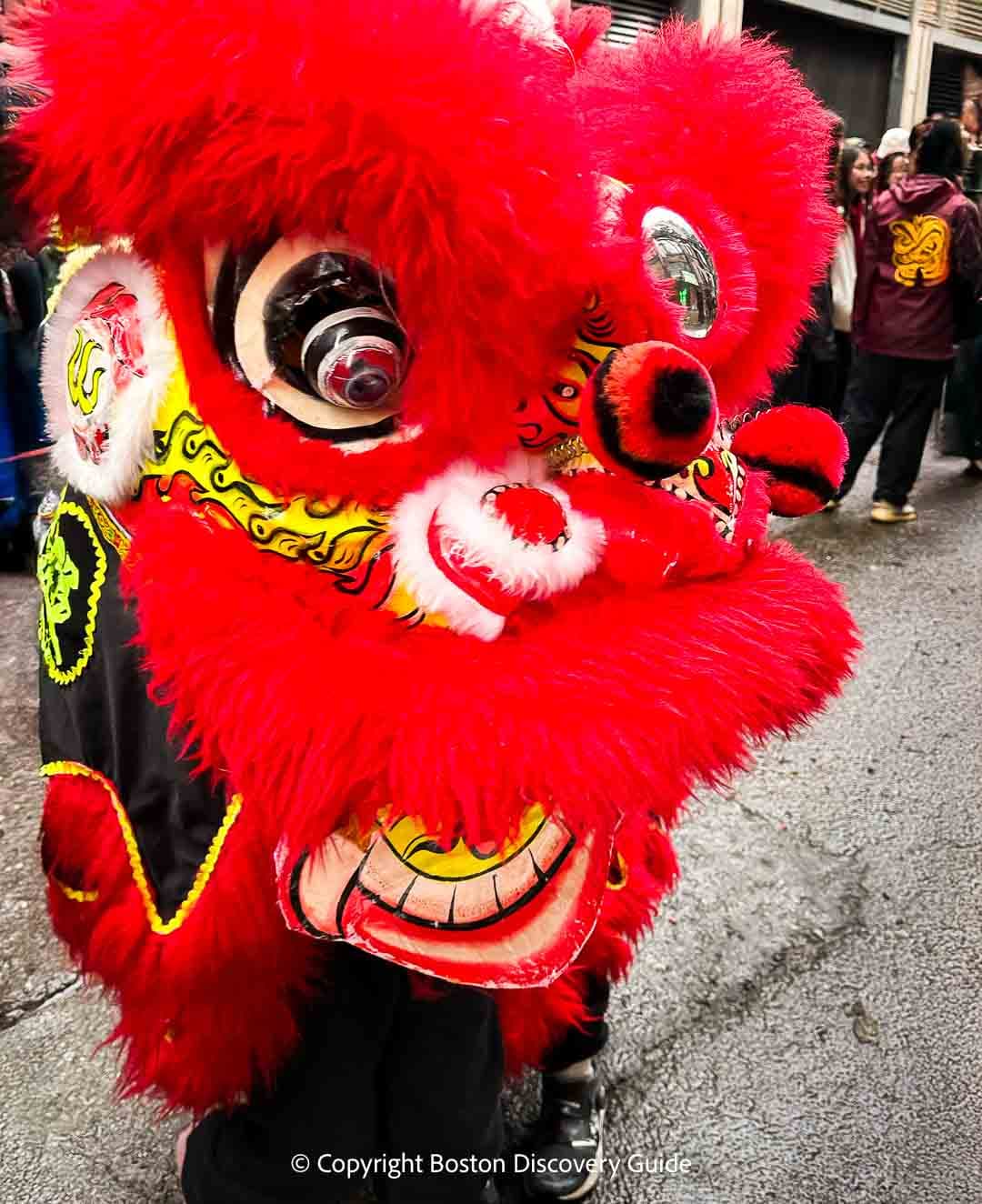
When the weather is good (in other words, no snow or rain falling) for a few days before the parade, Chinatown businesses hang red paper lanterns along the streets.
Red symbolizes good luck and happiness in Chinese culture.
Who Participates in Boston's Chinese New Year Parade?
Chinatown's civic and benevolent organizations and clubs sponsor local kung fu groups and dance troupes to perform the Lion Dances.
If the weather is really good - meaning no strong wind, pouring rain, or heavy snow - the parade also includes dragon dances. The fabrics and other materials used to make the dragon costumes are relatively delicate, and get badly damaged by too much moisture or wind.
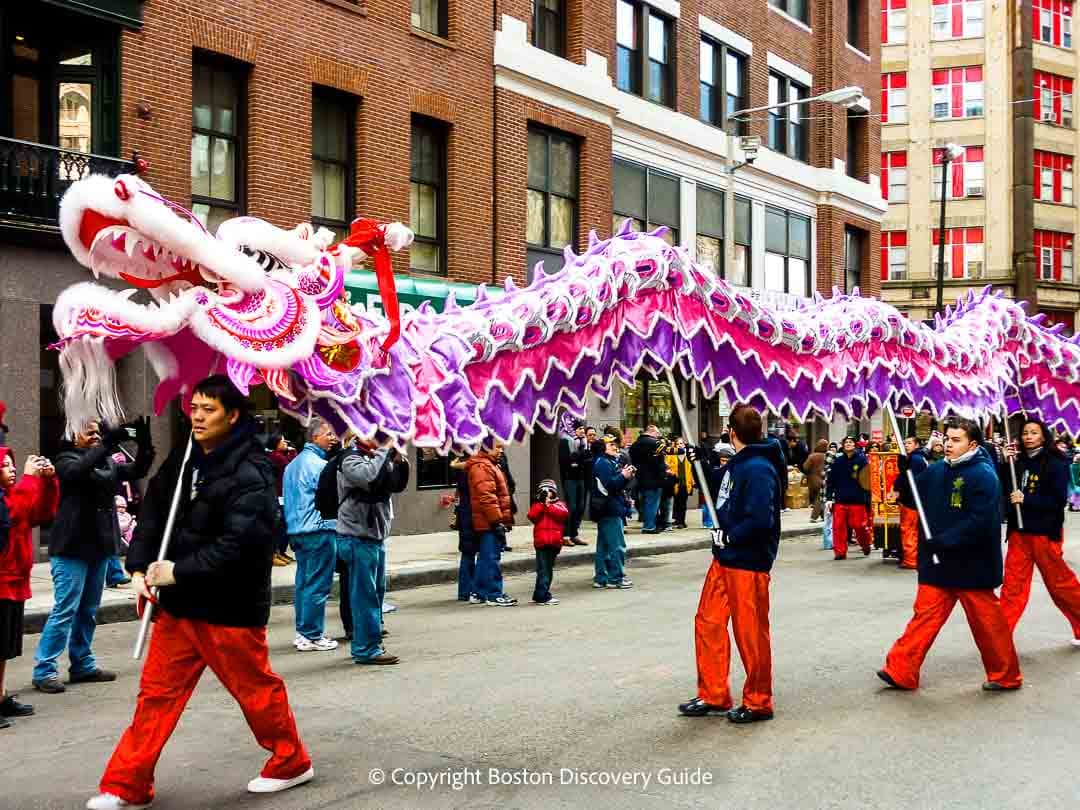
Multiple processions take place throughout the neighborhood.
Each procession typically includes a pair or even trio of "lions," a Buddha/Clown, attendants, and music ensembles with gongs, cymbals, and drums who set the emotional and rhythmic pace of the dance.
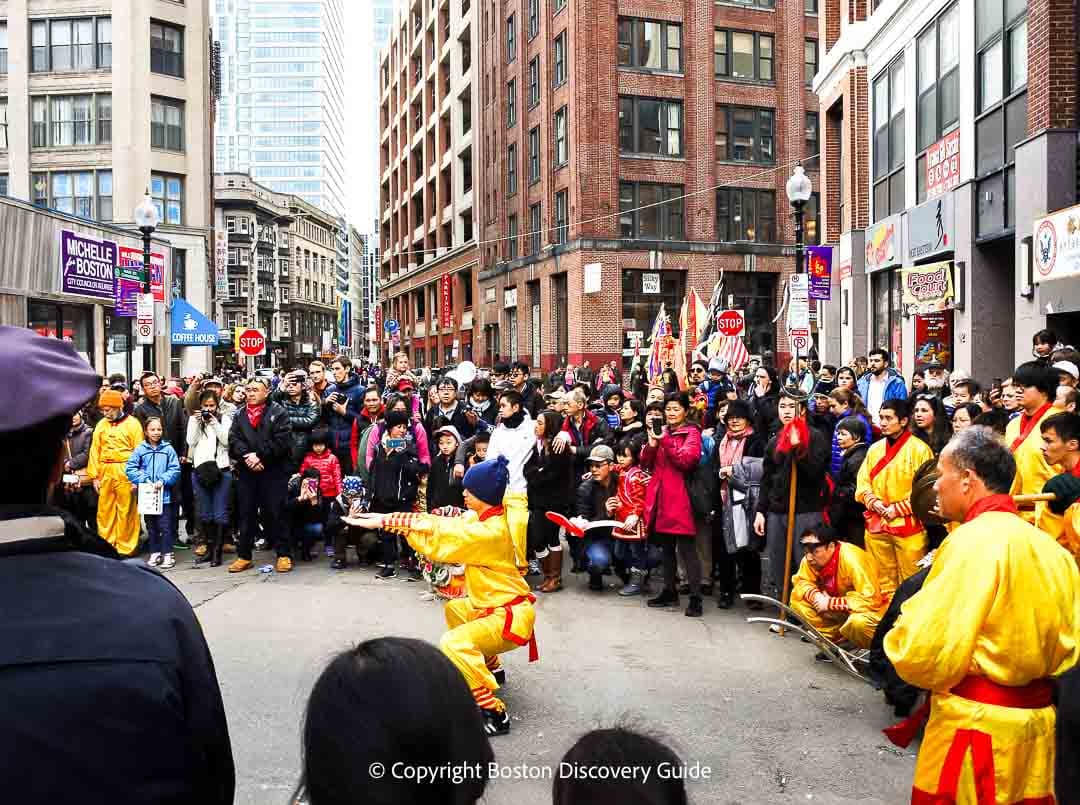
The elaborate lion costumes, hand-made in China or Taiwan, conceal 2 dancers. One controls head movements, and the other synchronizes the dance steps.
You'll typically see three major color combinations in the lion costumes: yellow, symbolizing wisdom, red (good luck!) and black (courage), and green and black (fierceness). Orange has also become more popular in recent years.
Most of the lion costumes in Boston's Chinese New Year Parade reflect the style of Southern Lions from Guangdong Province in Southern China, home of the Cantonese people who first settled (by way of California) in Boston in the mid-1870s.
If you observe the different lion pairs, you'll notice that each group has its own dance routine. The dance is choreographed to express a number of different emotions: joy, curiosity, respect, anger, contentment, playfulness. The clown may play with the lions as part of the routine.
Why Does Boston's CNY Parade Include Oranges, Cabbages, & Fireworks?
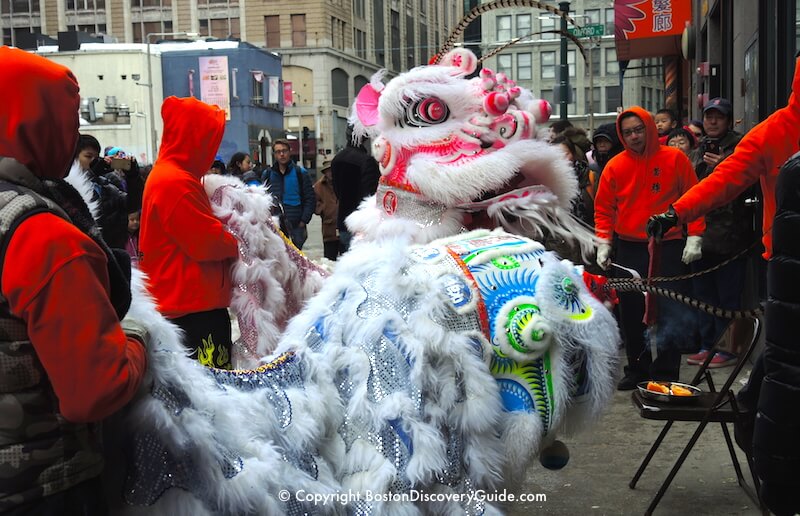
Traditional Lion Dances form the core attraction in Boston's Chinese New Year Parade and follow traditional rituals believed to chase away evil spirits while bringing good fortune and prosperity during the coming year.
Owners of Chinatown's restaurants, bakeries, tea shops, and other businesses place offerings - usually cabbages and oranges - on a small table or chair in front of the door.
A pair of lions stops outside each door, and announces their presence. They inspect the food offered to them.
When the restaurant owner comes to the door and "feeds" the lions, they bow three times in gratitude.
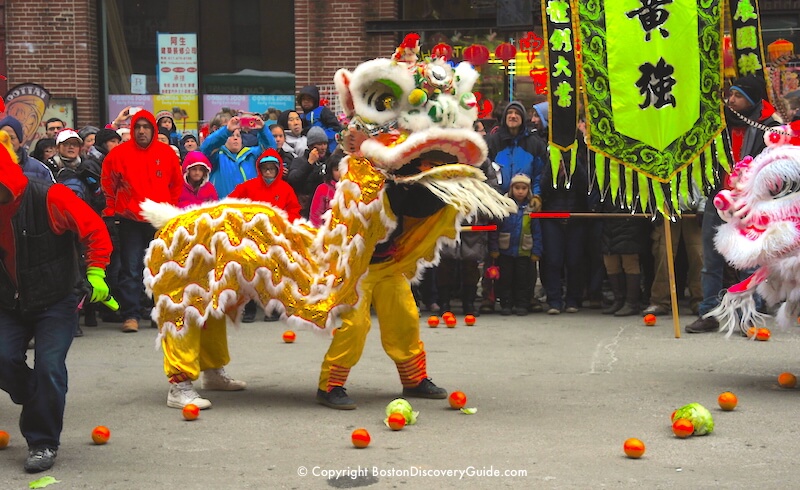
The lions (sometimes with help from their attendants) then toss the oranges into the air. Whoever catches them will have especially good luck throughout the year.
Next, the lions throw cabbages to the ground with enough force to smash them, which symbolizes spreading good fortune among the crowd.
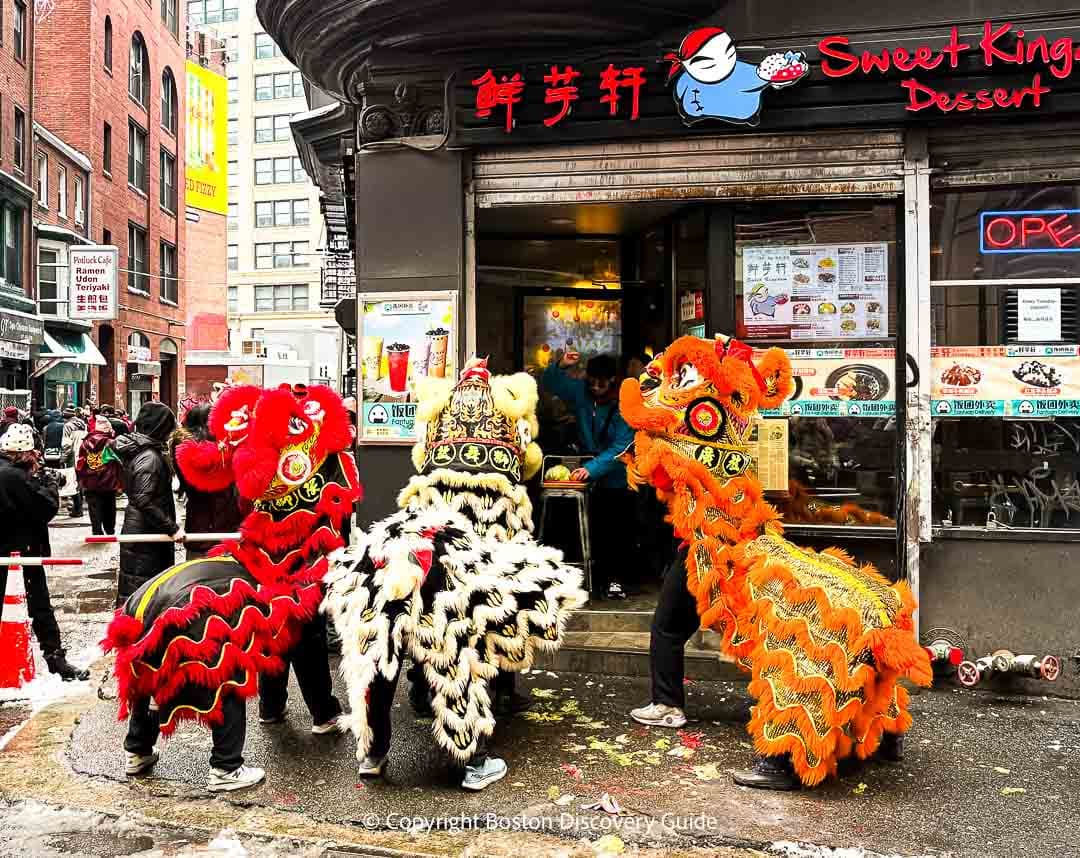
At the end, firecrackers are exploded to scare away evil spirits and bring the restaurant luck for the coming year.
Finally, the restaurant owner presents the lions with a red envelope (traditionally containing money), which they pretend to eat. This ensures good luck for the restaurant.
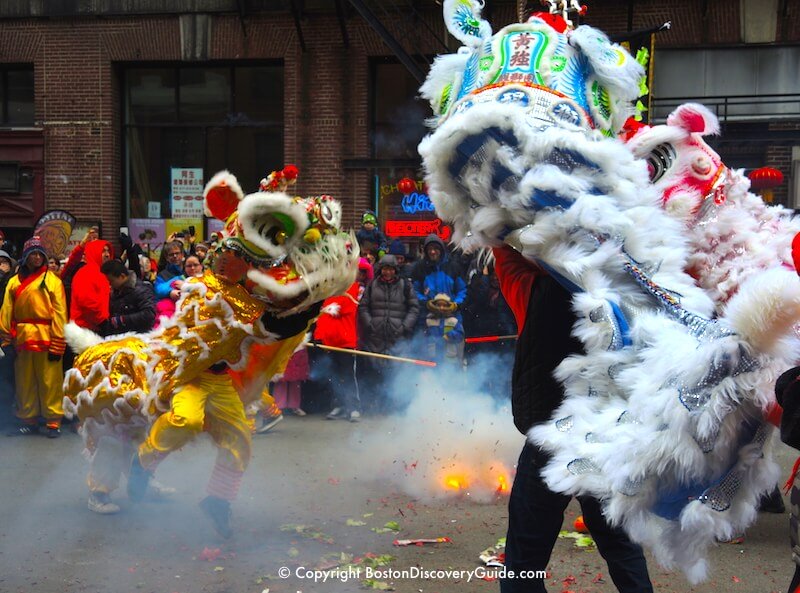
In response, the lions show their satisfaction by performing a special dance, accompanied by clashing cymbals, drums, and gongs. They'll even enter the larger restaurants and greet the guests.
Because multiple lion dances take place at more or less the same time in different streets, you'll sometimes hear a cacophony of firecrackers exploding across the neighborhood.
Hotels near Boston's Chinatown
If you're coming to Boston from any distance to see the Chinese New Year Parade, consider taking advantage of low winter hotel rates and spend the weekend in one of these wonderful hotels near Chinatown and the Theatre District:
Find more Chinatown/Theatre District hotels
More to Do: Chinese New Year Cultural Village
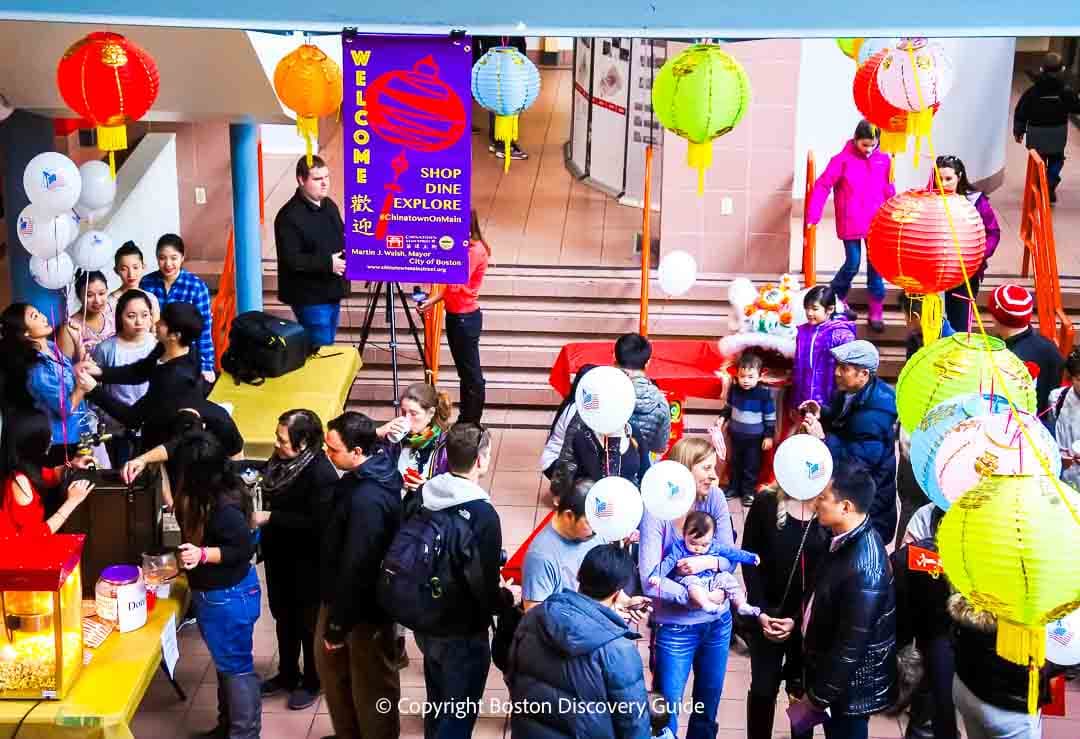
Chinese New Year Cultural Village, sponsored by the Chinatown Main Street organization, takes place in the China Trade Center (corner of Boylston and Washington Streets) on the same day as the parade. Check the February events calendar for the exact date and time.
You can enjoy special performances, Chinese crafts, snacks, other family-friendly activities, and festive lanterns and balloons.
What to Do After the Parade
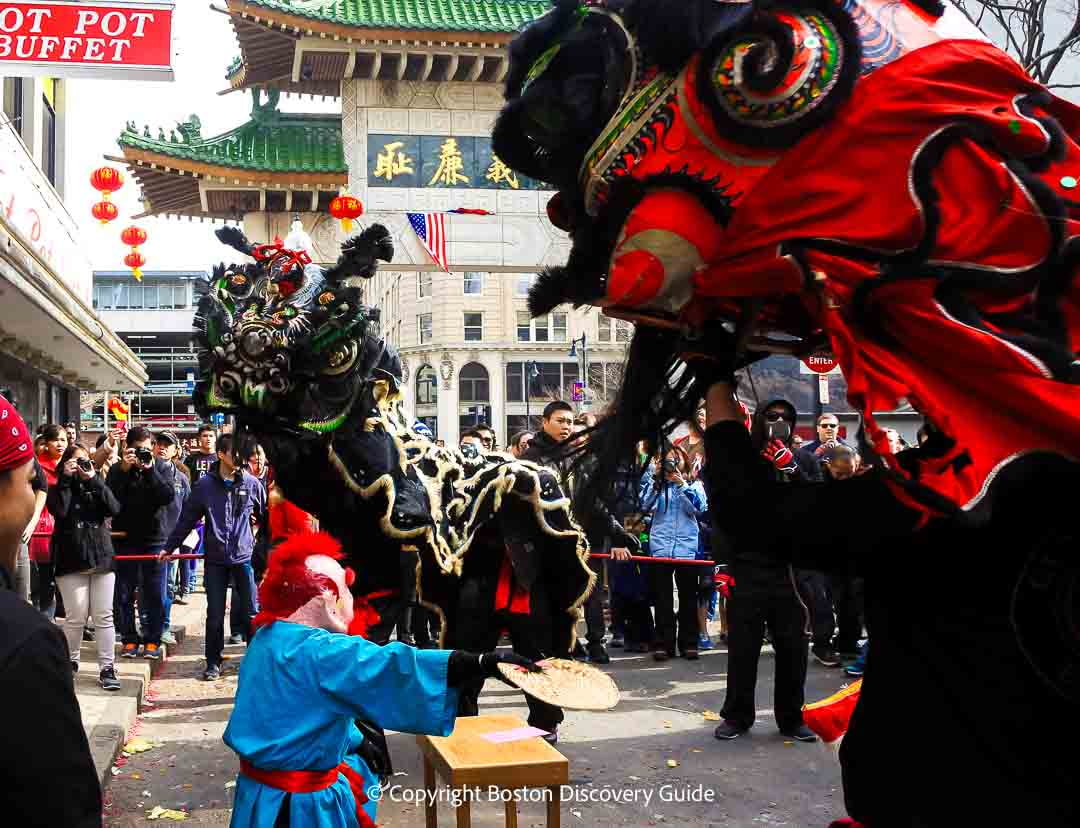
Wondering what to do in Chinatown after the parade?
That's easy - you're in Chinatown, so indulge in your favorite Chinese food!
Chinatown is full of excellent Asian restaurants. Check out Boston Discovery Guide's recommendations for our favorite fun Chinatown restaurants ranging from traditional to trendy.
You may also want to consider these top spots for dim sum, Chinatown's special version of brunch.
More suggestions:
- Catch a matinee in the nearby Theatre District after the parade. Find current shows
- Walk a couple of blocks to Boston Common and go ice skating on Frog Pond
- Go shopping at Faneuil Marketplace
More To See & Do in Boston
More Boston Events during February
More Things to Do in Boston in February
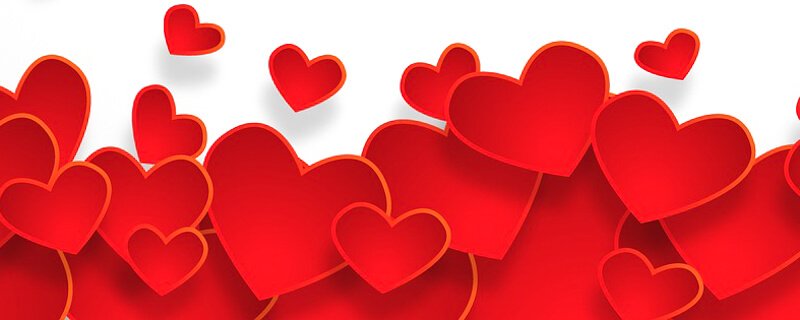
More Articles about Things to Do in Boston
Find a Hotel for Your Boston Visit
Enter your dates to see available hotels and rates:
Booking.com

